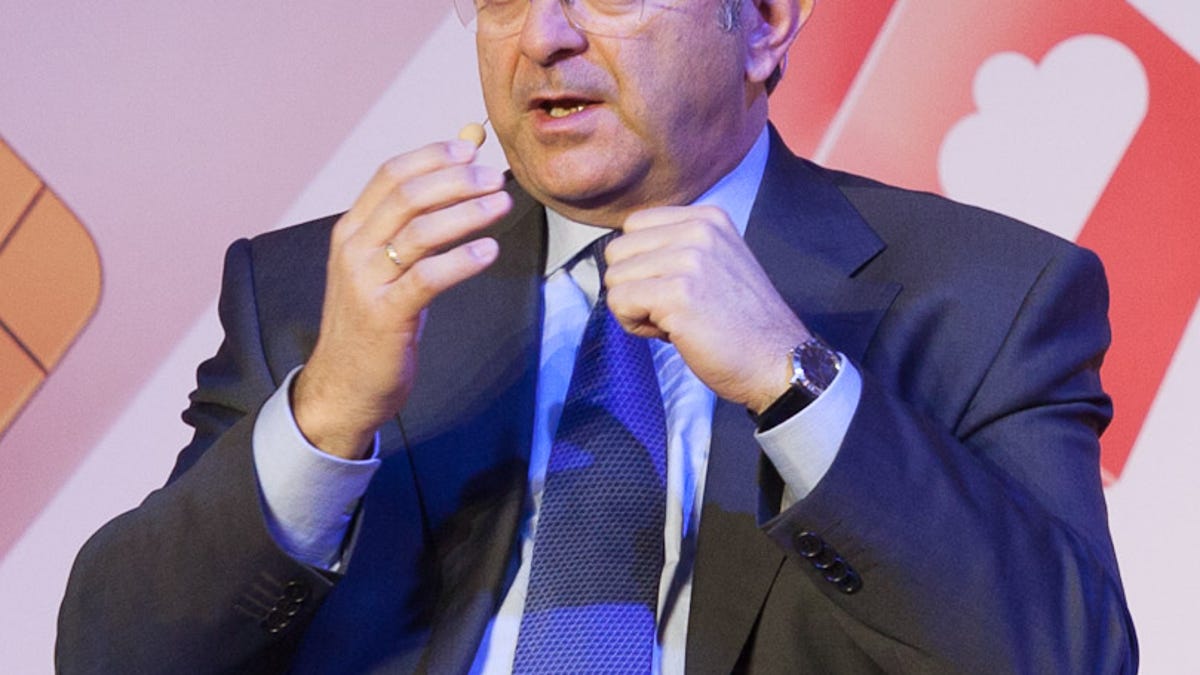Mobile operators: Stop picking on us, or else
Carriers don't want to be the bad guys--but they're telling customers, governments, and Internet companies it's time to pay up for their network services.

BARCELONA--Think your wireless network provider is hard-nosed today? Just wait.
Although executives for these operators are tired of being seen as the bad guy, they're also willing to take stern measures to defend their businesses, several said today at the Mobile World Congress show here. That means that Internet companies, governments, and mobile phone customers must pay up.
"We've become the bad gatekeepers," bemoaned Sunil Bharti Mittal, chief executive of Indian carrier Airtel. "When somebody watches YouTube on a mobile phone and ends up [with a] big bill, he curses under his breath at the telecom operators. But YouTube is consuming a massive amount of resources on our network. Somebody's got to pay for that."
Mittal suggested as a recourse that YouTube pay an "interconnect charge" to network operators similar to the termination fee one network pays another to complete a voice call. With carriers paying tens of billions of dollars for wireless spectrum and hundreds of billions of dollars to operate their network, "the industry needs to rebalance that pie" so that those carriers get a bigger slice of what now goes to companies such as Apple and Google.
"Operators are under extreme pressures. If we are going to build the highways, there has to be a tax on the highways," Mittal said. "I'm in favor of the customer feeling that the network providers are doing a great service. I don't want him to curse me. We are charging him to make our business viable."
Mobile phone users also are going to have to pay in various ways, said VimpelCom CEO Jo Lunder, who complained that operators get blamed when things go wrong but don't get credit for what they do offer.
"We have spoiled them a bit. We give things away too easily," Lunder said. "We think downloading stuff is free, sending stuff doesn't steal any resources in our network. Now the challenge is to make [consumers] understand if you want high quality, you want higher speed, you pay more. We also have to focus on how much volume are you using. You have to educate them so they're not using too much. You will see tariff plans addressing speed and volumes."
Telefonica CEO Santiago Fernandez Valbuena agreed that his industry has "spoiled" customers, suggesting that it's been too generous making it possible to upgrade phones rapidly. "It may not make sense nurture the huge turnover," he said.
Governments must shoulder the burden--or face the consequences, Lunder added.
"When I sit with my team in Amsterdam, operating in 19 different markets, the most [frequent] question is how do we allocate capital. Capital always will be a scarce resource. Countries that understand this reality will get investments and will get robust Internet access for their people. Entrepreneurship will grow, GDP will grow, education will improve, employment will increase."
How exactly should governments cooperate? "We need spectrum, we need them to understand that hyper-short-term competition is probably not the long-term good solution for their people, and they need also to cooperate on making it possible to bring e-health and e-commerce into the market."
Valbuena called for sympathy with the telcos' plight, too, in particular the difficulties of licensing wireless spectrum from governments.
"Spectrum is very much like a future tax," Valbuena said. "It''s very hard to have a business model that pays you back in 3 or 4 years. Very few businesses are like that."
So what happens if mobile operators come under too much pressure? They go out of business or get acquired, leaving customers with less choice, Mittal said.
Perhaps that's actually what's already happening. With the Google Fiber project, it's becoming a broadband provider in Kansas City, channeling profits from one part of its business into another. The company also was willing to bid for valuable wireless spectrum in 2007. So maybe YouTube will end up paying that network tax after all--to Google.

